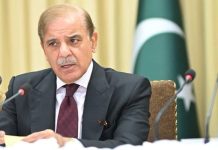
ISLAMABAD, Dec 9 (APP):As the world observes International Human Rights Day on Friday, the Narendra Modi government in India continues to indiscriminately target the minorities with over 300 attacks in the first nine months of this year against Christians, making the country one of the worst for the community to live.
Be it is the Muslims, Sikhs, Christians, or Dalits, the Hindutva mindset is poised to the cleansing of all non-Hindu communities not only through policy measures but also the use of force through RSS goons.
In September this year, Pakistan had issued a 132-page dossier on Indian war crimes in IIOJK which contained reports of 32 human rights watchdogs and 14 reports by Pakistan.
According to the document, since 1989, over 96,000 extra-judicial killings, around 162,000 cases of arbitrary arrests and torture, over 25,000 pellet gun injuries were recorded. Moreover, 11,250 women were raped, around 23,000 widowed and over 108,000 children orphaned. The document also provided details of the 8,652 unmarked mass graves that have been identified in 89 villages of IIOJK.
According to a report by the Religious Liberty Commission report, more than 300 attacks on Christians took place in the first nine months of this year, including at least 32 in Karnataka.
Four north Indian states registered as many as 169 of them: 66 in BJP-ruled Uttar Pradesh, 47 in Congress-ruled Chhattisgarh, 30 in tribal-dominated Jharkhand, and 30 in BJP-ruled Madhya Pradesh.
The Christians are blamed for converting Hindus into Christians and that also considered to be changing the character of India.
At least nine Indian states have planned anti-conversion laws, including Chhattisgarh, which is termed a “new laboratory” for anti-Christian hatred in India.
Since the Hindu nationalist BJP took power in 2014, persecution against Christian and Muslim minorities has been on the increase across the country, and today, it’s one of the worst countries in the world to be a Christian.
According to local observers, the acts of violence facing Christian communities are part of a concerted campaign to inflame tensions in a bid to justify new laws restricting their worshiping activities.
According to the World Watch List by Open Door, In India, “it can be difficult for some Christians to gain access to the Bible. Some Christians cannot read, and others live in places where reading a Bible publicly can lead to attacks or heavy persecution.”
This is the third year since 2019 that India has ranked in the top 10 of the World Watch List.
Indian Security Forces operate with pretty much impunity in IIOJ&K. The draconian security laws, e.g. Jammu and Kashmir Public Safety Act 1978, The Armed Forces Special Powers Act 1990, Prevention of Terrorism Act 2002, give extraordinary powers to Indian security personnel to shoot and kill unarmed civilians.
The U.N. office of the High Commissioner for Human Rights (OHCHR) released two reports in 2018 and 2019 accusing India of grave human rights violations in Kashmir and called for the formation of a commission of inquiry into the allegations.
In December 2019, Modi government introduced discriminatory Citizenship Amendment Act (CAA) which excludes Muslims and allows Hindus, Sikhs, Buddhists, Jains, and Parsi immigrants from Afghanistan, Bangladesh and Pakistan to get Indian nationality.
On one side, Indian security forces have turned IIOJ&K into an open air prison while on the other side Indian minorities are at the receiving end of saffron terrorism.
India’s anti-Sikh policies and religious bias have compelled the community to seek separate homeland, Khalistan. The recently held Khalistan referendum in the UK has sent a strong message to the Indian establishment to end discrimination against Sikhs.
India is a party to several UN declarations, such as the International Covenant on Civil and Political Rights but it continues to allow individual Hindu nationalists to intimidate and terrorize the Sikh minority without consequence.
Apart from that, Hindu Dalits are denied of access to education, health, inter-marriage and often pushed to seek low-grade jobs.
A telling example of the social exclusion that Dalits suffer even in the face of a large-scale natural disaster was witnessed in the immediate aftermath of the 26 December 2004 Tsunami which killed over 10,000 and displaced 650,000. xii
The cow vigilantes came to prominence as part of India’s violent polity during Modi’s first term as prime minister. Since then, from 2014 onwards and during the seven years of his first and now the second term, violence over the ownership and eating of cows has become such a norm that it is barely reported anymore.
Indian state has become the largest violator of human rights that are guaranteed in the UDHR. It has become an apartheid state where human rights and “equality” have become a distant idea.
The western powers, often claim to be the champions of human rights, have failed to hold India accountable for its bad human right record because of their vested interests.
On this International Human Rights Day, the United States and the European Union should rise above their economic and strategic interests and call for the protection of human rights in Indian minorities and Kashmiris in IIOJ&K.